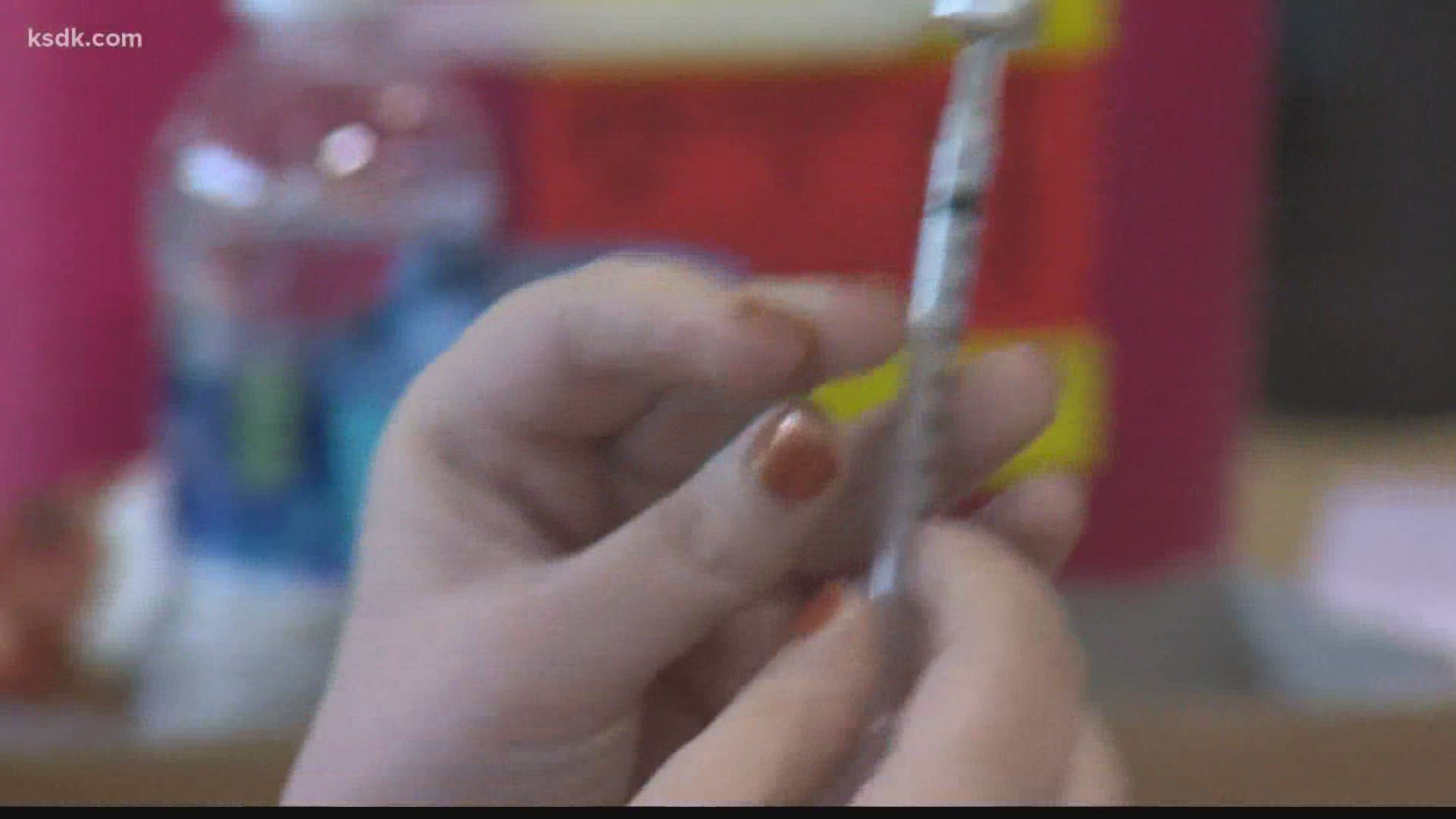ST. LOUIS — Valen Keefer has been given a chance at life — three times. She was born with a genetic condition called polycystic kidney disease. It eventually required a kidney transplant when she was 18 years old.
"The transplant gifted me the opportunity to find out who I was," said Keefer. "My life has been doubled because of it, and it enabled me to find the passion of sharing my story."
Keefer's passion of patient advocacy led her to share her experience with people all around the country for nearly 20 years. But her story took a different turn in 2016 when kidney disease started impacting her liver. Doctors told her she would need a life-saving liver transplant, but unfortunately the waitlist was too long in California. She started looking at relocating to the Midwest.
"I was number one for my blood group on the transplant list of Barnes-Jewish hospitals," recalled Keefer who lived in St. Louis for seven weeks with her husband Noah. "I was fortunate to only wait one week in St. Louis when the wait was a year and a half in California, and my liver transplant went amazing."
Now a double-transplant survivor, Keefer eventually came back to Barnes-Jewish to help celebrate 10,000 transplants right before the pandemic shut everything down. It was the last big event she attended.
Keefer is ready to get back to a new normal. She received her COVID-19 vaccines and also took part of a Johns Hopkins University study that looked at 650 transplant recipients to see if they had any antibody response. However, the research shows people like her may have to prepare for little to no immunity.
"I have such a zest for life," said Keefer. "When you get a transplant, you have to be careful, but also you're given this gift of life not to live in a bubble."
The research showed that 46% of participants had no antibody response while 39% percent had no response after the first dose but had a low response after the second. And 15% had a positive response after the first shot and a better-than-low response after the second shot.
Keefer fell in the 15% category and was elated.
"I felt proud of my body," Keefer said with a laugh. "I was like, 'Oh my gosh! How can my body go through all of this and then even know what to do with the vaccine?' I just felt so excited about it. I'm hoping that even just that news is hope for others. I'm in the 'it's possible group.'"
One of Keefer's doctors hopes this gives people another reason to go out and get the shot, especially those who've been reluctant so far.
"People are not just making those decisions for themselves alone," said William Chapman, Keefer's liver transplant doctor. Chapman is chief of the division of general surgery and section of transplantation and the surgical director of the Washington University and Barnes-Jewish Hospital Transplant Center program. "It's not just transplant recipients. It's lots of people who have more susceptibility."
That is potentially millions of people who are immunocompromised or take medications that suppress the immune system.
Even though there are other measures that need to be studied when it comes to immune response, Keefer says it may be the community at-large who can help the most.
"If there are some transplant recipients that can't build antibodies to the vaccine, we may rely on the kindness of others to help protect us," said Keefer. "It may be that we need to make sure that everyone that we're surrounded by is vaccinated to help protect us. So there are a lot of unanswered questions."

